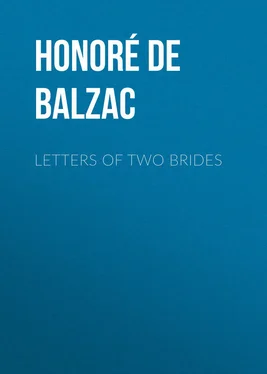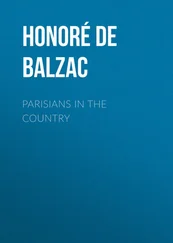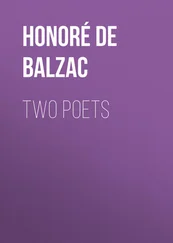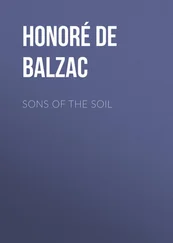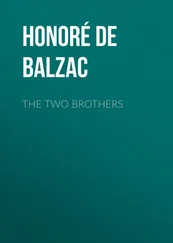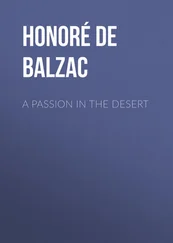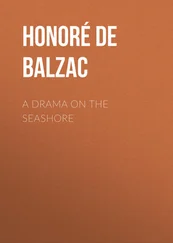Honoré Balzac - Letters of Two Brides
Здесь есть возможность читать онлайн «Honoré Balzac - Letters of Two Brides» — ознакомительный отрывок электронной книги совершенно бесплатно, а после прочтения отрывка купить полную версию. В некоторых случаях можно слушать аудио, скачать через торрент в формате fb2 и присутствует краткое содержание. Жанр: literature_19, foreign_antique, foreign_prose, на английском языке. Описание произведения, (предисловие) а так же отзывы посетителей доступны на портале библиотеки ЛибКат.
- Название:Letters of Two Brides
- Автор:
- Жанр:
- Год:неизвестен
- ISBN:нет данных
- Рейтинг книги:5 / 5. Голосов: 1
-
Избранное:Добавить в избранное
- Отзывы:
-
Ваша оценка:
- 100
- 1
- 2
- 3
- 4
- 5
Letters of Two Brides: краткое содержание, описание и аннотация
Предлагаем к чтению аннотацию, описание, краткое содержание или предисловие (зависит от того, что написал сам автор книги «Letters of Two Brides»). Если вы не нашли необходимую информацию о книге — напишите в комментариях, мы постараемся отыскать её.
Letters of Two Brides — читать онлайн ознакомительный отрывок
Ниже представлен текст книги, разбитый по страницам. Система сохранения места последней прочитанной страницы, позволяет с удобством читать онлайн бесплатно книгу «Letters of Two Brides», без необходимости каждый раз заново искать на чём Вы остановились. Поставьте закладку, и сможете в любой момент перейти на страницу, на которой закончили чтение.
Интервал:
Закладка:
A tremor passed through him, the blood rose in his olive cheeks; he replied in a voice of some emotion:
"Religion must have taught you, better than I can, to respect the unhappy. Had I been a don in Spain, and lost everything in the triumph of Ferdinand VII., your witticism would be unkind; but if I am only a poor teacher of languages, is it not a heartless satire? Neither is worthy of a young lady of rank."
I took his hand, saying:
"In the name of religion also, I beg you to pardon me."
He bowed, opened my Don Quixote , and sat down.
This little incident disturbed me more than the harvest of compliments, gazing and pretty speeches on my most successful evening. During the lesson I watched him attentively, which I could do the more safely, as he never looks at me.
As the result of my observations, I made out that the tutor, whom we took to be forty, is a young man, some years under thirty. My governess, to whom I had handed him over, remarked on the beauty of his black hair and of his pearly teeth. As to his eyes, they are velvet and fire; but he is plain and insignificant. Though the Spaniards have been described as not a cleanly people, this man is most carefully got up, and his hands are whiter than his face. He stoops a little, and has an extremely large, oddly-shaped head. His ugliness, which, however, has a dash of piquancy, is aggravated by smallpox marks, which seam his face. His forehead is very prominent, and the shaggy eyebrows meet, giving a repellent air of harshness. There is a frowning, plaintive look on his face, reminding one of a sickly child, which owes its life to superhuman care, as Sister Marthe did. As my father observed, his features are a shrunken reproduction of those of Cardinal Ximenes. The natural dignity of our tutor's manners seems to disconcert the dear Duke, who doesn't like him, and is never at ease with him; he can't bear to come in contact with superiority of any kind.
As soon as my father knows enough Spanish, we start for Madrid. When Henarez returned, two days after the reproof he had given me, I remarked by way of showing my gratitude:
"I have no doubt that you left Spain in consequence of political events. If my father is sent there, as seems to be expected, we shall be in a position to help you, and might be able to obtain your pardon, in case you are under sentence."
"It is impossible for any one to help me," he replied.
"But," I said, "is that because you refuse to accept any help, or because the thing itself is impossible?"
"Both," he said, with a bow, and in a tone which forbade continuing the subject.
My father's blood chafed in my veins. I was offended by this haughty demeanor, and promptly dropped Senor Henarez.
All the same, my dear, there is something fine in this rejection of any aid. "He would not accept even our friendship," I reflected, whilst conjugating a verb. Suddenly I stopped short and told him what was in my mind, but in Spanish. Henarez replied very politely that equality of sentiment was necessary between friends, which did not exist in this case, and therefore it was useless to consider the question.
"Do you mean equality in the amount of feeling on either side, or equality in rank?" I persisted, determined to shake him out of this provoking gravity.
He raised once more those awe-inspiring eyes, and mine fell before them. Dear, this man is a hopeless enigma. He seemed to ask whether my words meant love; and the mixture of joy, pride, and agonized doubt in his glance went to my heart. It was plain that advances, which would be taken for what they were worth in France, might land me in difficulties with a Spaniard, and I drew back into my shell, feeling not a little foolish.
The lesson over, he bowed, and his eyes were eloquent of the humble prayer: "Don't trifle with a poor wretch."
This sudden contrast to his usual grave and dignified manner made a great impression on me. It seems horrible to think and to say, but I can't help believing that there are treasures of affection in that man.
IX. MME. DE L'ESTORADE TO MLLE. DE CHAULIEU. December
All is over, my dear child, and it is Mme. de l'Estorade who writes to you. But between us there is no change; it is only a girl the less.
Don't be troubled; I did not give my consent recklessly or without much thought. My life is henceforth mapped out for me, and the freedom from all uncertainty as to the road for me to follow suits my mind and disposition. A great moral power has stepped in, and once for all swept what we call chance out of my life. We have the property to develop, our home to beautify and adorn; for me there is also a household to direct and sweeten and a husband to reconcile to life. In all probability I shall have a family to look after, children to educate.
What would you have? Everyday life cannot be cast in heroic mould. No doubt there seems, at any rate at first sight, no room left in this scheme of life for that longing after the infinite which expands the mind and soul. But what is there to prevent me from launching on that boundless sea our familiar craft? Nor must you suppose that the humble duties to which I dedicate my life give no scope for passion. To restore faith in happiness to an unfortunate, who has been the sport of adverse circumstances, is a noble work, and one which alone may suffice to relieve the monotony of my existence. I can see no opening left for suffering, and I see a great deal of good to be done. I need not hide from you that the love I have for Louis de l'Estorade is not of the kind which makes the heart throb at the sound of a step, and thrills us at the lightest tones of a voice, or the caress of a burning glance; but, on the other hand, there is nothing in him which offends me.
What am I to do, you will ask, with that instinct for all which is great and noble, with those mental energies, which have made the link between us, and which we still possess? I admit that this thought has troubled me. But are these faculties less ours because we keep them concealed, using them only in secret for the welfare of the family, as instruments to produce the happiness of those confided to our care, to whom we are bound to give ourselves without reserve? The time during which a woman can look for admiration is short, it will soon be past; and if my life has not been a great one, it will at least have been calm, tranquil, free from shocks.
Nature has favored our sex in giving us a choice between love and motherhood. I have made mine. My children shall be my gods, and this spot of earth my Eldorado.
I can say no more to-day. Thank you much for all the things you have sent me. Give a glance at my needs on the enclosed list. I am determined to live in an atmosphere of refinement and luxury, and to take from provincial life only what makes its charm. In solitude a woman can never be vulgarized – she remains herself. I count greatly on your kindness for keeping me up to the fashion. My father-in-law is so delighted that he can refuse me nothing, and turns his house upside down. We are getting workpeople from Paris and renovating everything.
X. MLLE. DE CHAULIEU TO MME. DE L'ESTORADE January
Oh! Renee, you have made me miserable for days! So that bewitching body, those beautiful proud features, that natural grace of manner, that soul full of priceless gifts, those eyes, where the soul can slake its thirst as at a fountain of love, that heart, with its exquisite delicacy, that breadth of mind, those rare powers – fruit of nature and of our interchange of thought – treasures whence should issue a unique satisfaction for passion and desire, hours of poetry to outweigh years, joys to make a man serve a lifetime for one gracious gesture, – all this is to be buried in the tedium of a tame, commonplace marriage, to vanish in the emptiness of an existence which you will come to loath! I hate your children before they are born. They will be monsters!
Читать дальшеИнтервал:
Закладка:
Похожие книги на «Letters of Two Brides»
Представляем Вашему вниманию похожие книги на «Letters of Two Brides» списком для выбора. Мы отобрали схожую по названию и смыслу литературу в надежде предоставить читателям больше вариантов отыскать новые, интересные, ещё непрочитанные произведения.
Обсуждение, отзывы о книге «Letters of Two Brides» и просто собственные мнения читателей. Оставьте ваши комментарии, напишите, что Вы думаете о произведении, его смысле или главных героях. Укажите что конкретно понравилось, а что нет, и почему Вы так считаете.
